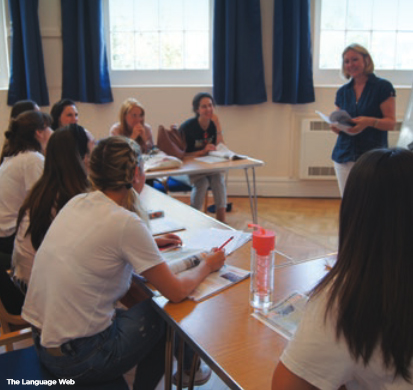Menu
Why do you need tutors? When do you engage one? How do you find the good ones, and what are the alternatives? Georgina Blaskey tackles the subject of tutors and tutoring.

Making the decision to engage a tutor is a big one. On top of the commitment to school life, homework, extracurricular activities and making space for downtime, the thought of building in tutoring to our already jam-packed lives can feel overwhelming. Not to mention it’s an expensive commitment which, for some, comes on top of school fees. So how do you identify the need for a tutor?
Start by asking yourself, why do we want a tutor? “Usually there’s a need, either parent-driven because they are worried about an aspect of their child’s education or they’re not happy about what the school is doing,” explains Lorrae Jaderburg, founder of tutor agency JK Educate. “If it’s child-driven, it’s usually because the child needs to go deeper into a subject. Sometimes parents don’t fully trust the school or feel the support the school can offer is maxed out, but the child needs more so they need to look to an external source.” A tutor offers an opportunity to learn and develop in a way that’s different to school, and this is a driving force for many who take the decision to tutor. “Families engage tutors for a variety of reasons, but frequently tutors are requested for students who struggle to learn in a classroom environment. This may partly be due to distractions in the classroom, but often this is because the student learns best via learning channels that are not typically used, or practically possible, in a classroom environment,” says Clare Mostyn, Tutor Placement Manager at Bonas MacFarlane Education. “One-to-one tutorials provide a focused environment, where students are able to direct the pace of their lessons, and provide an excellent opportunity for a variety of different learning channels to be used. A good tutor will tailor their lesson plans and teaching methods to the student, ensuring the time spent in the tutorial is maximised, allowing the student to achieve their full potential.”

Once you have established a need for a tutor, the next step is finding the right one. The industry remains unregulated which leads to a host of problems, such as lack of qualifications, experience, DBS checks and accountability. In your search for a tutor, it can be tempting to go with word-of-mouth suggestions. “Be wary of this route,” says Jaderburg. “The problem with word-of-mouth recommendations is that what works for one child won’t always work for another and everyone’s expectations are different.” Equally, online tutor boards should be treated with caution. “I’m concerned about online tutoring. These suppliers don’t have the teaching skills, methodology and experience of teaching children, particularly young children.”
A tutor agency offers extensive assessment and continuous monitoring of both the tutor and the child to ensure a successful outcome. “Finding a tutor through an established agency that has a reputation to uphold will ensure the tutor has been carefully selected and vetted,” explains Mostyn. “At Bonas MacFarlane, he selection process is rigorous; all of our tutors have been met by a member of the team at our London office, where they are required to deliver a sample lesson plan, as well as satisfy our requirements on their qualifications, experience and background checks. We are constantly receiving feedback on our tutors and are therefore able to ensure that we send only the best.”

Most reputable agencies operate in the same way and that is why they are the more expensive option – the monitoring and accountability aspect is vital to the end result. Tutoring is a financial commitment, so while going through an agency is expensive, you may get more value for money in terms of the best match, the best experience and, therefore, the best result.
You can expect to pay upwards of £55 per hour but it could be over £100 per hour in some instances.
A less expensive alternative is a learning centre. Mathnasium is a maths-only learning centre which offers bespoke, 1:1 maths instruction to help build confidence through filling gaps in the pupil’s knowledge and strengthening the foundations for those who are struggling. “We have a monthly subscription with a minimum of six months and children come twice a week for an hour each time,” explains Centre Director John Preston. It’s a successful American model that teaches for understanding and retention, so children develop mathematical dexterity.

When your child first meets their tutor, they should be assessed to find out where they are now, what their potential is, what the goal is and how they will get there. This means looking at gaps in their knowledge, their strengths and weaknesses, what schools they should be realistically aiming for and creating a plan to succeed. Tash Rosin runs Teatime Tutors, an interesting concept that involves tutoring a small group, no more than four, in a local café with a break for supper. “Assessment is important – we look at how they feel about school, their attitude to learning; sometimes they just need a bit of support and encouragement to boost their confidence. I’ll also fill in key gaps, consolidate the basics and go back over topics when we need to. It’s often over teatime, when we have general relaxed discussions, that the child reveals the most about what they struggle with or their feelings about a subject.”
Starting from a baseline assessment with a clear goal in sight is vital but the right timing is also important. “If students have a particular exam they are working towards, such as the 11+, it is preferable to engage the tutor at least one year before the exam,” advises Mostyn. “If a tutor is engaged before this point, this is certainly helpful, but the tuition should support the general curriculum until nearer the exam, when exam-targeted tuition becomes the focus. When engaging a tutor for any exam, it is best to start looking for a tutor as the exams for the previous year’s intake draw to a close. This is the time when the schedules of the most experienced tutors start to open up, as tuition for some of their students comes to an end.”

While it’s all well and good to have identified the schools you are aiming for and the plan to get there, the testing process is continually changing, so how able is a tutor to stay on top of the shifting sands of the assessment process? Many tutor agencies also have school consultants who can help guide parents through these changes. Mary Lonsdale from Mentor Education explains: “Great steps have been taken by the most forward-looking schools to prevent the over-working of children for entrance exams. We particularly love Wimbledon High’s innovative Creative Assessment Day with small groups of girls. Similarly, at Common Entrance level, schools have realised that children learning in-depth syllabuses across multiple subjects at 13 might be unnecessary if they are given unconditional offers off the back of IQ tests in the autumn term of Year 6. We are being contacted by lots of anxious parents who are trying to navigate these new entrance exams. We tell them that the basic educational truths still hold. Look for a school where your child will be happy and thrive – we have school entrance consultants who can help you draw up a suitable shortlist.”
For the partnership to work, honesty and trust are as key in the relationship between tutor and parent as in the relationship between tutor and tutee. Showing your child how valuable the role the tutor plays in their life is crucial to a good outcome. It’s helpful if families are consistent and committed to fulfil their aim and get results. It’s best to stick to weekly classes to keep the motivation going. If you move classes around a lot or even cancel them, it shows a lack of commitment that the child picks up on. Show them you value the tutor sessions by having the books ready each week (a ‘tutor space’ on a shelf can be a good idea), by marking their homework when required and by being organised for every session.
Hopefully you will find a tutor who ignites your child’s love of learning, reduces any stress in the build-up to exams and offers real solutions to prepare your child for their next steps